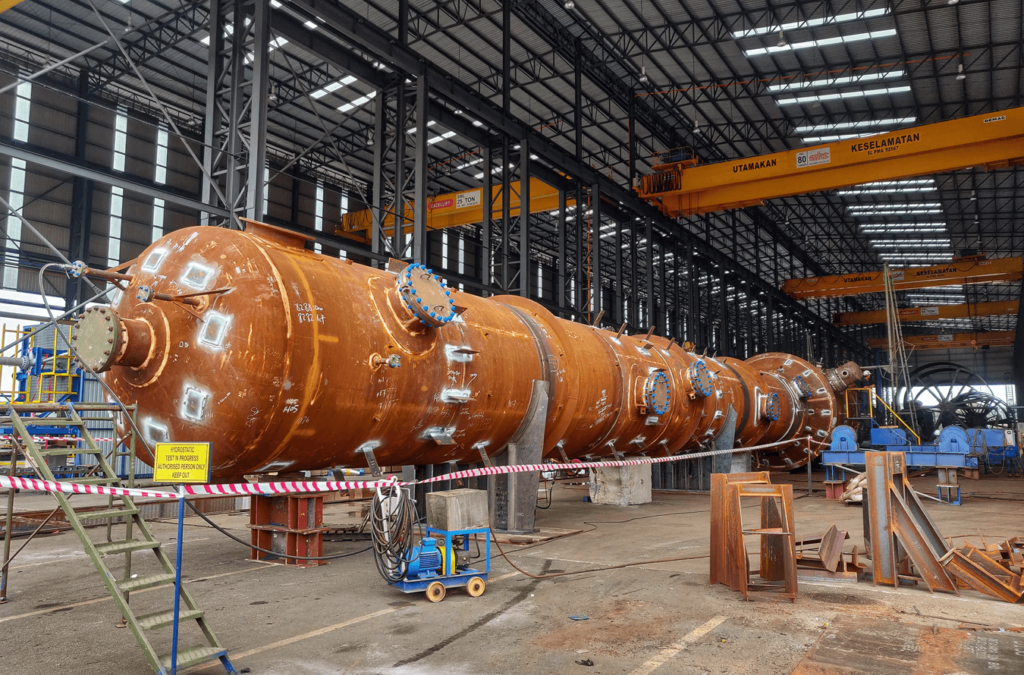Static Pro Engineering
Process & Thermal Design
At Static Pro Engineering, we believe that process and thermal design form the backbone of efficient industrial operations. These designs determine how energy, fluids, and heat are managed within industrial systems, directly impacting efficiency, safety, and overall performance. From chemical plants and refineries to power generation and food industries, every facility relies on optimized process and thermal systems to ensure productivity and cost savings.
Our team of skilled engineers integrates advanced simulation tools, engineering standards, and years of industry experience to deliver designs that are both technically sound and economically viable. We prioritize energy efficiency, sustainability, and compliance with international codes, ensuring that every system we design performs reliably under real-world conditions.
What is a Process & Thermal Design?
Process and thermal design refers to the systematic engineering approach used to design systems where fluids, energy, and heat transfer are involved. It includes planning process flow, equipment sizing, heat balance, and energy optimization to ensure smooth, efficient, and safe operations.
The process design aspect focuses on defining how fluids and gases move through pipelines, reactors, and equipment, ensuring that pressure, temperature, and flow rates are controlled. Thermal design, on the other hand, deals with heat transfer—how heating, cooling, or temperature regulation is managed within exchangers, boilers, condensers, and other equipment.
Key considerations include:
Fluid dynamics and flow properties
Heat transfer coefficients and efficiency
Energy balance and conservation
Safety and reliability under different conditions
Compliance with industry standards (ASME, TEMA, API, ISO)

Comprehensive Pressure Vessel Design Services
At Static Pro Engineering, our comprehensive process and thermal design services go beyond basic calculations. We adopt a holistic approach that considers performance, safety, sustainability, and cost-effectiveness.
Our comprehensive design includes:
Process Simulation – Using advanced tools to model fluid flow, pressure drops, and energy balances.
Thermal Analysis – Designing systems that manage heat transfer efficiently under varying loads.
Equipment Sizing & Selection – Determining optimal dimensions and selecting materials for durability and safety.
Energy Optimization – Reducing energy consumption through efficient heat recovery systems and modern technologies.
Safety & Environmental Considerations – Ensuring compliance with emission standards and incorporating safety features like relief systems and monitoring.
Lifecycle Performance – Designing systems that reduce maintenance and provide long-term operational reliability.
By integrating CFD (Computational Fluid Dynamics), FEA (Finite Element Analysis), and modern thermal modeling techniques, we deliver solutions that meet industry challenges head-on. Our comprehensive approach ensures that clients receive systems optimized for performance, efficiency, and compliance.
01
Planning & Conceptualization
How We Start
Every project begins with a planning and conceptualization stage, where the foundation for success is built. At Static Pro Engineering, this phase involves close collaboration with clients to understand process requirements, energy demands, site conditions, and compliance needs.
Key activities during this stage include:
Developing process flow diagrams (PFDs) and piping & instrumentation diagrams (P&IDs).
Conducting preliminary thermal and process simulations.
Evaluating feasibility, risks, and potential bottlenecks.
Assessing cost estimates, project timelines, and sustainability goals.


02
Detailed Design & Delivery
How We Execute
Once conceptualization is complete, we move to the detailed design and delivery stage. This is where ideas are transformed into practical, build-ready engineering solutions.
Our detailed design includes:
Precise engineering drawings with 2D and 3D modeling.
Thermal & hydraulic calculations to optimize performance.
Equipment specifications including materials, dimensions, and protective systems.
Integration with existing infrastructure for seamless operation.
Compliance documentation with codes such as ASME, TEMA, API, and ISO.
The delivery phase involves close coordination with fabrication and construction teams, ensuring that systems are built exactly to specifications. We conduct performance testing, validation, and commissioning support to guarantee that systems operate reliably from day one.

What Our Clients Say:
“Our commitment to quality and precision has earned the trust of clients across industries. Here’s what they say about working with us.”



